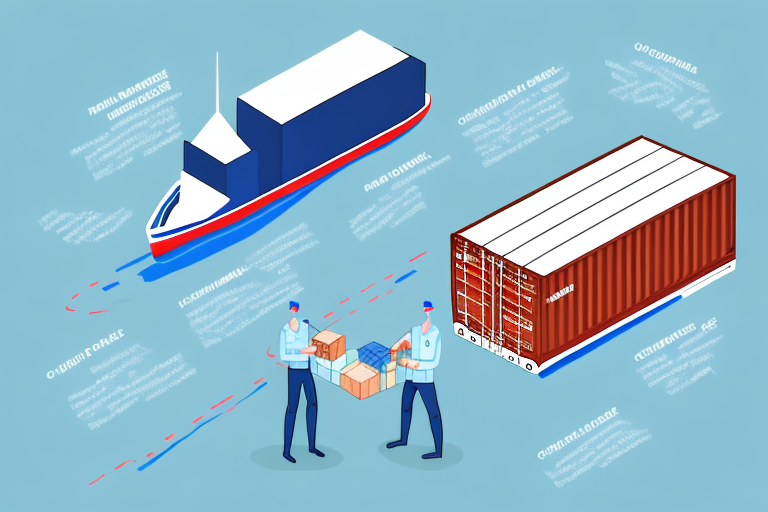The role of the Importer of Record in international trade is crucial for the smooth functioning of global supply chains. An Importer of Record is the entity responsible for ensuring that imported goods comply with all relevant laws and regulations of the importing country. In this article, we will explore the various aspects of the Importer of Record role, including its importance, key responsibilities, legal requirements, and challenges faced in the industry. We will also discuss best practices for effective Importer of Record management and the impact of global trade agreements on this role. Furthermore, we will examine the relationship between Importers of Record and Customs Brokers, as well as the emerging technologies transforming this profession. By the end of this article, you will have a comprehensive understanding of the Importer of Record and its significance in international trade.
Understanding the Role of the Importer of Record in International Trade
International trade involves the movement of goods across national borders. To control the flow of goods and ensure compliance with various regulations, countries require an entity to take responsibility for the imported goods. This entity, known as the Importer of Record, plays a crucial role in facilitating the importation process. The Importer of Record is responsible for ensuring that the goods meet all legal requirements, including proper documentation, accurate classification, valuation, and payment of duties and taxes. They are the primary party liable for any non-compliance, making it essential for businesses to understand the duties and responsibilities associated with this role.
Importers of Record are typically businesses or individuals who have a legal presence in the importing country. They can be the actual owners of the goods or act on behalf of the goods’ owners. This role requires a deep understanding of the regulations and customs procedures of the importing country, as well as strong relationships with government agencies, logistics providers, and other stakeholders involved in the importation process.
Furthermore, the Importer of Record is responsible for managing the logistics and transportation of the imported goods. This includes coordinating with shipping companies, freight forwarders, and customs brokers to ensure the smooth movement of the goods from the country of origin to the destination. They must also stay updated on any changes in trade regulations, tariffs, or trade agreements that may impact the importation process.
Importance of Properly Identifying the Importer of Record
Properly identifying the Importer of Record is crucial for several reasons. Firstly, it ensures that the responsible party is held accountable for complying with all relevant laws and regulations. By clearly identifying the Importer of Record, customs authorities can verify the party’s credentials and ensure that they possess the necessary knowledge and resources to meet their obligations.
Secondly, correctly identifying the Importer of Record enables seamless communication between the various parties involved in the importation process. Customs brokers, freight forwarders, and other intermediaries rely on the Importer of Record’s information to accurately prepare and submit customs documentation. Clear identification also helps prevent delays and errors that can occur when incorrect or incomplete information is provided.
Thirdly, properly identifying the Importer of Record allows for effective risk management. Customs authorities use the Importer of Record’s information to assess the potential risks associated with the imported goods. This includes evaluating the goods’ compliance with safety standards, determining the appropriate duty rates, and identifying any potential security concerns. By accurately identifying the Importer of Record, customs authorities can ensure that the necessary risk mitigation measures are in place.
Furthermore, proper identification of the Importer of Record is essential for maintaining accurate trade statistics. Governments rely on import data to analyze economic trends, monitor trade balances, and develop trade policies. By correctly identifying the Importer of Record, accurate import statistics can be generated, providing valuable insights into the country’s trade activities and informing decision-making processes.
Key Responsibilities of an Importer of Record
The Importer of Record has several key responsibilities that ensure compliance with customs regulations and facilitate the smooth flow of goods through the importation process. These responsibilities include:
1. Customs Compliance: The Importer of Record must ensure that all imported goods comply with the customs regulations and procedures of the importing country. This includes proper classification, valuation, and documentation of the goods.
2. Documentation and Record-keeping: The Importer of Record is responsible for maintaining accurate and complete records of all import transactions. This includes invoices, bills of lading, customs entries, and any other relevant documents.
3. Duty and Tax Payment: The Importer of Record is responsible for accurately calculating and paying any duties and taxes owed on the imported goods. They must ensure that all payments are made in a timely manner to avoid penalties or delays.
4. Regulatory Compliance: The Importer of Record must comply with all relevant import regulations and laws, including product safety, licensing, and labeling requirements. They should stay updated on any changes in regulations that may affect their import operations.
5. Supply Chain Management: The Importer of Record plays a vital role in managing the supply chain. They coordinate with suppliers, transportation providers, customs authorities, and other stakeholders to ensure the efficient movement of goods from the country of origin to the final destination.
6. Risk Management: Importing goods involves certain risks, such as customs audits, penalties, or shipment delays. The Importer of Record should implement risk management strategies to minimize these risks and ensure the uninterrupted flow of goods.
7. Trade Compliance: In addition to customs compliance, the Importer of Record is responsible for ensuring trade compliance. This involves adhering to international trade agreements, such as free trade agreements or trade preference programs, and understanding the rules and regulations governing the importation of specific goods. The Importer of Record must stay informed about any changes in trade policies that may impact their import operations and take necessary actions to remain compliant.


